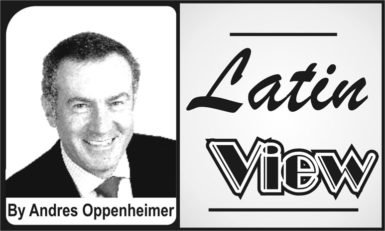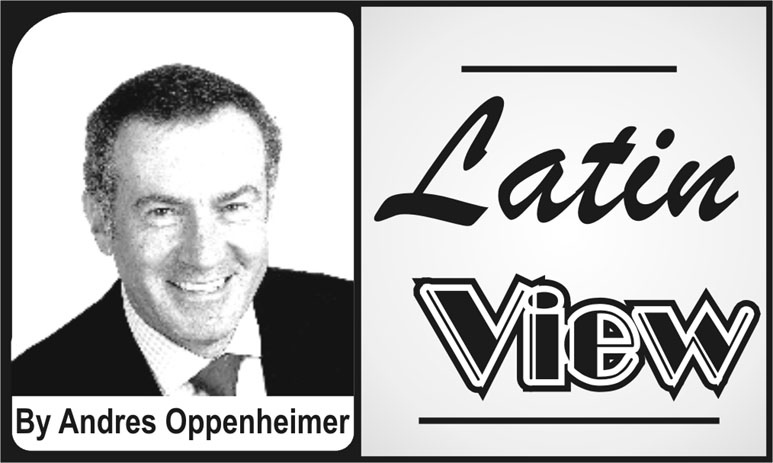The Venezuelan crisis has made it clear that the Trump administration has outsourced its South America policy to US Sen Marco Rubio. That’s a bad idea, even if you have a positive opinion of the Florida senator.

Rubio (Republican – Florida) and Sen Bob Menendez (Democratic – New Jersey) sent a letter to President Donald Trump on Tuesday requesting targeted sanctions against 10 current and former Venezuelan officials. On Wednesday, shortly after 6 am, Rubio gave advance notice of the coming US sanctions, tweeting that “Today will be a bad day for 13 enablers of (Venezuela President) Nicolas Maduro’s effort to destroy democracy in Venezuela, and more actions will follow.”
Six hours later, the Trump administration announced the sanctions against 13 Maduro regime figures, including 10 from the list submitted by Rubio and Menendez.
The announcement was made by the White House and the Treasury Department. Oddly, there was no statement by the State Department.
I called the State Department to make sure that I had not missed its latest statements on Venezuela, but learned that there had not been any in recent days. A Google search of Secretary of State Rex Tillerson’s name and Venezuela produced no results this week either, despite the fact that the Venezuelan crisis has left at least 105 dead in street protests in recent weeks.
Rubio became visible as the de facto US-policy maker in Venezuela in February, when he arranged a White House meeting with Trump and Lilian Tintori, the wife of then-imprisoned Venezuelan opposition leader Leopoldo Lopez. Rubio also has been a key figure behind Trump’s partly symbolic reversal of former President Barack Obama’s Cuba policy. The change was announced with great fanfare by Trump – with Rubio at his side – in Miami in June.
There is nothing wrong with Trump receiving advice from Rubio, a fluent Spanish-speaker who heads the Senate Western Hemisphere Subcommittee, except for the fact that the US president seems to be totally side-stepping the State Department.
That prevents Trump from getting other important points of view from US diplomats who may see things from a different perspective.
For instance, Rubio has suggested that the United States impose an oil embargo on Venezuela if Maduro goes ahead with his plans to rewrite the constitution. But Rubio’s view may be influenced by his desire to please his Florida constituents and make sure that the growing group of Venezuelan exiles votes for him in future elections.
Leading Venezuelan opposition figures tell me that a US oil embargo would be a terrible idea. Much like what happened in Cuba, it would help energize Maduro’s base by allowing him to claim that he is a victim of “US imperialism.” And it would fracture the bloc of more than a dozen major Latin American countries that are demanding that Maduro restore democracy in Venezuela.
For the first time in many years, Mexico, Brazil, Argentina and several other big countries in the region are putting collective pressure on the Venezuelan regime. That diplomatic bloc would collapse immediately if the US imposed an oil embargo that could affect all Venezuelans, Latin American diplomats tell me.
In addition, keeping the State Department at the margins means that the United States is not using its full diplomatic power – including its 19 embassies with thousands of diplomats in Latin America – to help convince other countries to adopt and enact collective diplomatic sanctions against Venezuela’s regime.
The reason Rubio has become so influential with Trump on Latin American issues may be very simple: Rubio is a member of the Senate Intelligence Committee that is investigating Russia’s interference in last year’s elections. And judging from Trump’s tweets, the Russia investigation is the one issue that worries the president the most.
That’s an unfortunate reason to outsource this hemisphere’s biggest crisis to one senator. It’s OK for Trump to listen to Rubio, but effectively marginalizing thousands of experienced US diplomats won’t help strengthen an international coalition to help restore democracy in Venezuela.





